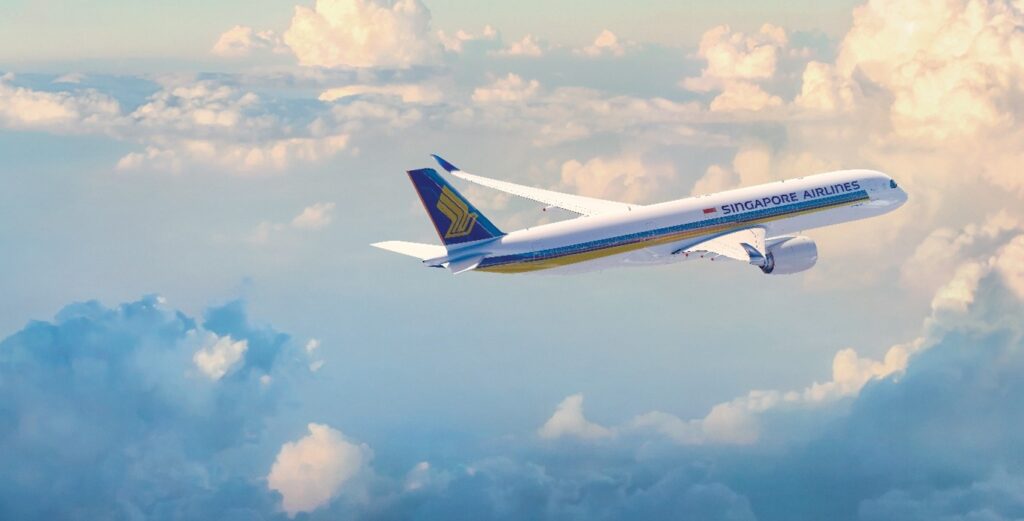
Singapore Airlines A350 - Photo credit: Singapore Airlines
Singapore has taken a groundbreaking step in sustainable aviation by becoming the first country in the world to introduce a mandatory Sustainable Aviation Fuel Levy (SAF), starting from next year. This bold environmental initiative, which begins with tickets sold from 1 April 2026 for flights departing on or after October 1, 2026, is designed to drive the adoption of greener fuel sources and help decarbonise air travel from Singapore’s world-leading Changi Airport.
World’s First Green Air Travel Tax
Singapore’s new SAF levy represents a global first, putting the city-state at the forefront of sustainable air travel policy. The levy is directly tied to Singapore’s commitment to making at least 1% of all aviation fuel at its airports sustainable by 2026, with a goal to ramp this up to 3–5% by 2030.
How the SAF Levy Works
The amount travellers pay depends both on their flight’s destination and cabin class:
- Four geographical bands determine the rates, ranging from Southeast Asia, most of Asia and Australia, Europe and Africa, to the Americas.
- Economy and premium economy fares: S$1 (SE Asia), S$2.80 (Asia/Australia), S$6.40 (Europe/Africa/NZ), S$10.40 (Americas).
- Business/first class fares: Four times the economy rate, topping out at S$41.60 for Americas-bound travelers.
- Transit passengers are exempt from the levy, as are flights for charity, humanitarian missions, and live cargo.
- SAF levy on private jets: Charges range from S$100 to S$1,950 depending on distance and aircraft type.
All funds collected go to a statutory SAF fund, used exclusively for the procurement and development of sustainable aviation fuel and supporting infrastructure.
Impact: Affordable and Measured Start
CAAS originally forecast the levy to be much higher, for example S$16 to London, but recent lower SAF prices have brought the costs down to S$6.40 on the same route. The authority emphasizes that the fee is modest and reasonable, intended to both encourage adoption and give airlines, businesses, and the traveling public time to adjust.
Setting a Global Precedent
With this policy, Singapore is leading aviation into a greener future and providing an actionable blueprint for other countries considering similar measures. While many nations have worried about voter reaction to increased travel costs, Singapore’s SAF levy has been designed to keep fees manageable and to make environmental contributions a standard part of buying a ticket.
As more nations follow Singapore’s lead, the hope is that sustainable aviation fuel adoption will accelerate worldwide, allowing the industry to cut emissions substantially over the next decade.
For more details on Singapore’s green travel policies and Changi Airport’s award-winning sustainability initiatives, visit the Civil Aviation Authority of Singapore.
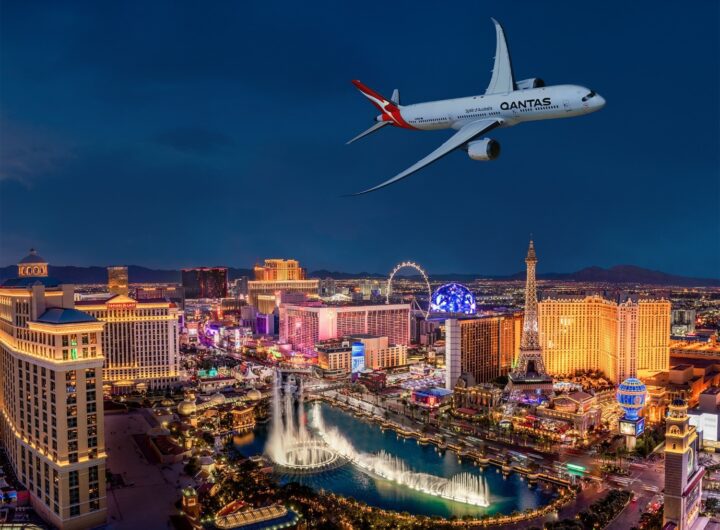 “Breaking” Qantas Launches Historic Direct Sydney to Las Vegas Flights: No-Stop US Adventure from December 2026
“Breaking” Qantas Launches Historic Direct Sydney to Las Vegas Flights: No-Stop US Adventure from December 2026  Air New Zealand’s Electric Aircraft Trial Marks a Major Step Toward Net Zero Flying
Air New Zealand’s Electric Aircraft Trial Marks a Major Step Toward Net Zero Flying  Riyadh Air Unveils Hafawa Lounge in Riyadh, Redefining Premium Airport Hospitality Ahead of Launch
Riyadh Air Unveils Hafawa Lounge in Riyadh, Redefining Premium Airport Hospitality Ahead of Launch 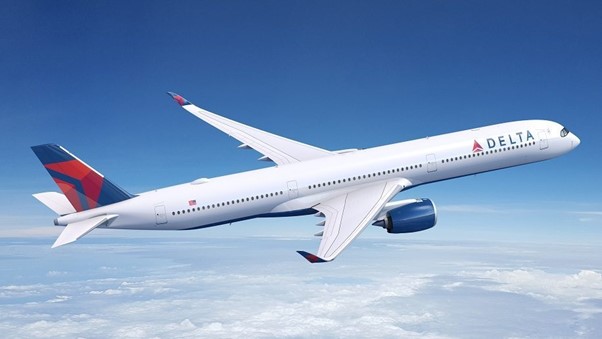 Delta Air Lines to Go Daily Between Melbourne and Los Angeles for Peak 2026–27 Summer
Delta Air Lines to Go Daily Between Melbourne and Los Angeles for Peak 2026–27 Summer  Luxury in the Skies: Inside the World’s Most Extravagant First‑Class Airline Cabins
Luxury in the Skies: Inside the World’s Most Extravagant First‑Class Airline Cabins 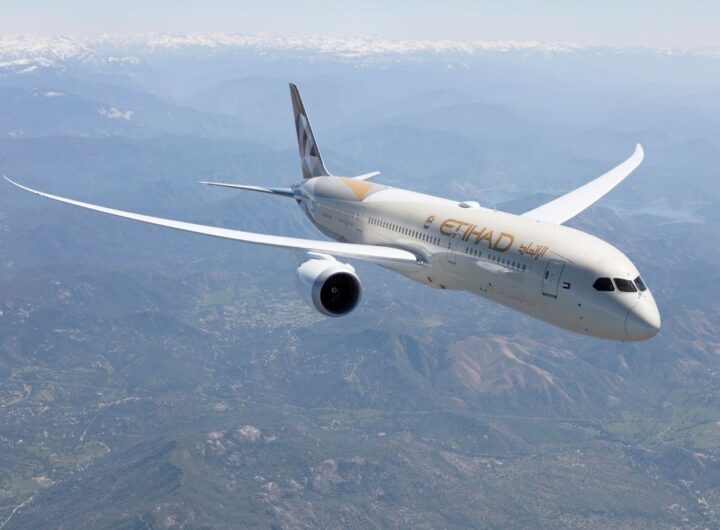 Etihad Upgrades All Australia Flights to Its Newest Business Class Suites
Etihad Upgrades All Australia Flights to Its Newest Business Class Suites 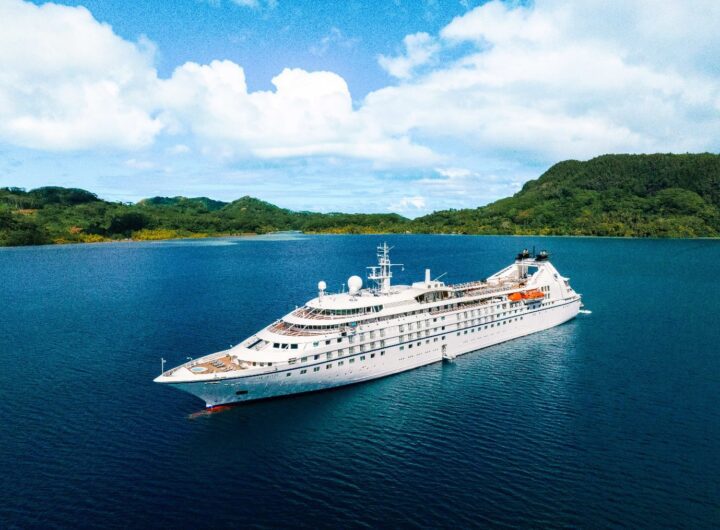 Windstar Cruises Opens Winter 2027–2028 Season: 21 New Small-Ship Itineraries from Tahiti to Asia and the Canary Islands
Windstar Cruises Opens Winter 2027–2028 Season: 21 New Small-Ship Itineraries from Tahiti to Asia and the Canary Islands  Aman-i-Khás Unveils New Grand Tented Pool Pavilions and Immersive Wilderness Experiences in Ranthambore
Aman-i-Khás Unveils New Grand Tented Pool Pavilions and Immersive Wilderness Experiences in Ranthambore  10 Most Beautiful (and Exclusive) Beaches in the World – And How to Reach Them from Australia
10 Most Beautiful (and Exclusive) Beaches in the World – And How to Reach Them from Australia 